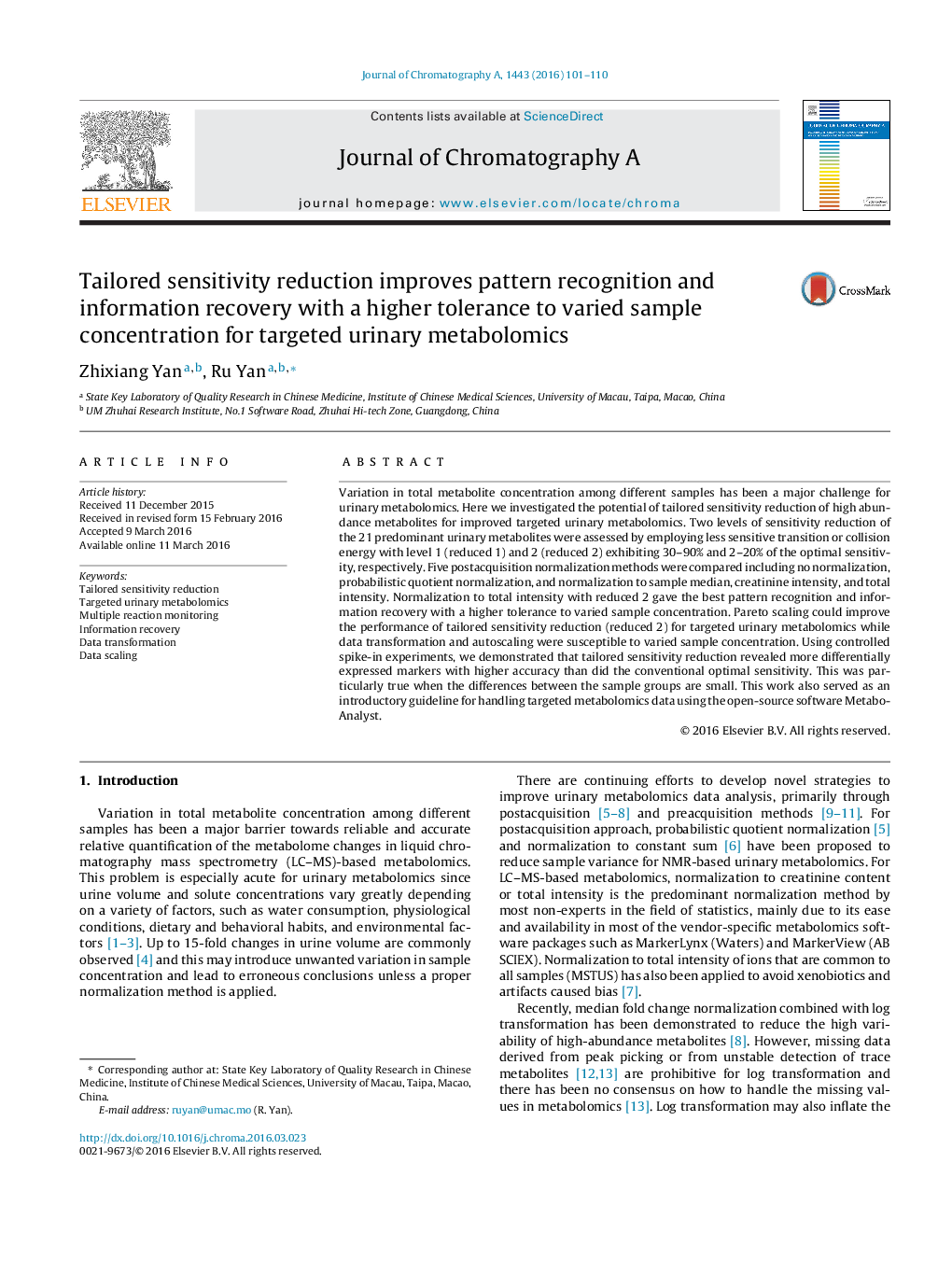| Article ID | Journal | Published Year | Pages | File Type |
|---|---|---|---|---|
| 1200491 | Journal of Chromatography A | 2016 | 10 Pages |
•Five postacquisition normalization methods were compared for targeted urinary metabolomics.•Tailored sensitivity reduction improved pattern recognition with a higher tolerance to varied sample concentration.•Tailored sensitivity reduction discovered more compounds spiking with marginal concentration differences.•Tailored sensitivity reduction was more discriminative and revealing in urinary gender classification.
Variation in total metabolite concentration among different samples has been a major challenge for urinary metabolomics. Here we investigated the potential of tailored sensitivity reduction of high abundance metabolites for improved targeted urinary metabolomics. Two levels of sensitivity reduction of the 21 predominant urinary metabolites were assessed by employing less sensitive transition or collision energy with level 1 (reduced 1) and 2 (reduced 2) exhibiting 30–90% and 2–20% of the optimal sensitivity, respectively. Five postacquisition normalization methods were compared including no normalization, probabilistic quotient normalization, and normalization to sample median, creatinine intensity, and total intensity. Normalization to total intensity with reduced 2 gave the best pattern recognition and information recovery with a higher tolerance to varied sample concentration. Pareto scaling could improve the performance of tailored sensitivity reduction (reduced 2) for targeted urinary metabolomics while data transformation and autoscaling were susceptible to varied sample concentration. Using controlled spike-in experiments, we demonstrated that tailored sensitivity reduction revealed more differentially expressed markers with higher accuracy than did the conventional optimal sensitivity. This was particularly true when the differences between the sample groups are small. This work also served as an introductory guideline for handling targeted metabolomics data using the open-source software MetaboAnalyst.
